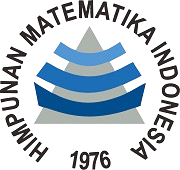Design of Android-Based Learning Media “MathArt” on Simple Interest, Discounts, and Taxation at the Lower Secondary Level of Education
DOI:
https://doi.org/10.30736/voj.v6i2.1028Keywords:
Android, Social Arithmetic, Learning Video, ICTAbstract
This study aims to design and evaluate the effectiveness of the MathArt application, an Android-based learning media focused on simple interest, taxes, and discounts for lower secondary education at SMPN 17 Bengkulu City. The research adopts a four-stage Research and Development (R&D) method: 1) research, 2) planning, 3) development, and 4) product trials. Data were collected qualitatively via Google Forms, targeting data form students and teachers. Questionnaires assessed MathArt’s practically and effectiveness. Responses showed strong positive reception on MathArt, with 87.32% from students and 87.54% from teachers. This indicates its high suitability as a social arithmetic learning resource.
Downloads
References
Anisah, S., Sampoerno, P. D., & Hajizah, M. N. 2019. Pengembangan Media Pembelajaran Berbasis Android Pada Materi Aritmetika Sosial Menggunakan Pendekatan Saintifik Berbantuan Software Construct 2 Di Kelas Vii Smp Negeri 137 Jakarta. Jurnal Riset Pembelajaran Matematika Sekolah, 3(2), 37-46.
Metaputri, N. K., & Garminah, N. N. 2016. Pengaruh Model Pembelajaran Inkuiri Terbimbing Dan Minat Belajar Terhadap Keterampilan Proses Sains Pada Siswa Kelas IV SD. Jurnal Pendidikan Dan Pengajaran, 49(2), 89–97. https://doi.org/10.23887/jppundiksha.v49i2.9013
Parsania, P. S., Chavda, N. M., & Kamani, K. C. 2015. Information and Communication Technology & Its Impact in Improving the Teaching and Learning of English Language. International Journal of Computer Science Engineering and Information Technology Research (IJCSEITR), 5(3), 1-6.
Riduwan. 2008. Metode & Teknik Menyusun Tesis. Bandung: Alfabeta.
Riyan, M. 2021. Penggunaan Media Pembelajaran Berbasis Android Pada Pembelajaran Teks Eksposisi. Diksi, 29(2), 205-216.
Sari, I. R. 2021. Pengembangan Media Pembelajaran Menggunakan Aplikasi Online Powtoon Pada Materi Aritmatika Sosial Kelas VII SMP (Doctoral dissertation, Universitas Islam Riau).
Sakinah., dkk 2021. Edukasi Penerapan Penggunaan Teknologi Yang Bijak Terhadap Perilaku Anak Usia Dini: Jurnal Dedikasi. http://openjournal.unpam.ac.id/index.php/PD/article/view/16098.
Subarkah, M. A. 2019. Pengaruh gadget terhadap perkembangan anak. Rausyan Fikr: Jurnal Pemikiran Dan Pencerahan, 15(1).
Sugiyono. 2015. Metode Penelitian Pendidikan Pendekatan Kuantitatif, Kualitatif, dan RnD. Bandung: Alfabeta.
Sukmadinata, N. S. 2012. Metode Penelitian Pendidikan. PT Remaja Rosdakarya.
Suminar, D. 2019, May. Penerapan teknologi sebagai media pembelajaran pada mata pelajaran sosiologi. In Prosiding Seminar Nasional Pendidikan FKIP (Vol. 2, No. 1, pp. 774-783).
Toffler, A. 1980. The Future Shock “Third Wave”. New York: Bantam Book.
Winarni, Endang Widi. 2018. Teori dan Praktik Penelitian Kuantitatif, Kualitatif, PTK, dan R&D. Jakarta: Bumi Aksara.
Downloads
Published
How to Cite
Issue
Section
License
Copyright (c) 2024 Ratnah Lestary, Mulya Sarti Apriani, Rizki Putri Kesuma, Riko Dwi Cahyo, Teddy Alfra Siagian

This work is licensed under a Creative Commons Attribution-NonCommercial-ShareAlike 4.0 International License.
Copyright:
Authors who publish their manuscripts in this Journal agree to the following conditions:
- Copyright of any article on Vygotsky: Jurnal Pendidikan Matematika dan Matematika is held solely by the author under the Creative Commons Attribution 4.0 International license (CC BY NC SA).
- Authors can submit papers separately, arrange non-exclusive distribution of manuscripts that have been published in this journal into other versions (e.g. sending to the author's institutional repository, publication in a book, etc.) by acknowledging that the manuscript has been published for the first time in Vygotsky: Jurnal Pendidikan Matematika dan Matematika.
License:
Vygotsky: Jurnal Pendidikan Matematika dan Matematika is published under the terms of the Creative Commons Attribution 4.0 International License (CC BY NC SA). This license permits anyone to copy and redistribute this material in any form or format, compile, modify and develop this material for any purpose as long as it is not for commercial purposes. Additionally, anyone must provide credit and distribute contributions under the license of the creator of the original work.







